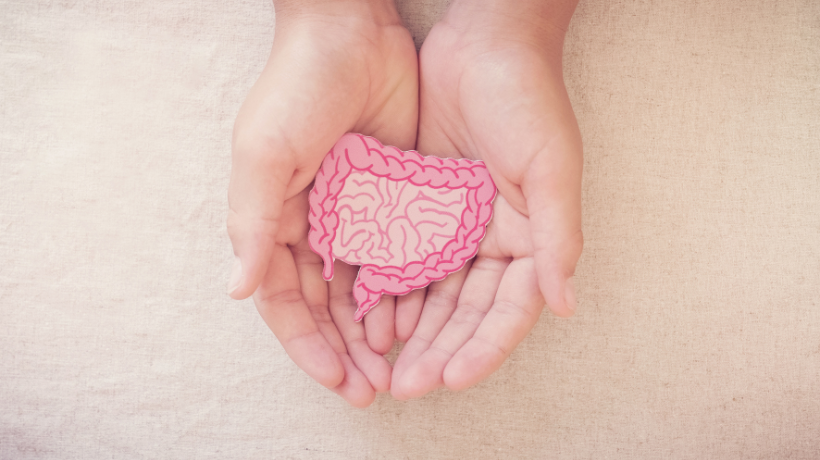General Bowel Health
The goal is to have a bowel movement in a regular pattern. This will vary for everyone. It is normal to have a bowel movement anywhere from 3 per week to 3 per day. The stool (poop) should be soft yet well-formed. It should pass easily without pain. The tips below can help you have regular and easy bowel movements.

Diet
- Eat meals at regular times. This will help your bowel movements be regular.
- Chew food well. Chewing is the first stage of digestion.
- Eat soluble and insoluble fiber. Your diet should include 25-30 grams of fiber per day.
- Soluble fiber absorbs water to form a gel. This slows down digestion and may help to bulk your stool.
- Insoluble fiber remains more intact during digestion. This speeds up the passage of food and has a laxative effect.
- Avoid refined and processed foods; these lack fiber.
- Stay hydrated. Drink 6-8 glasses of water per day. This will help keep your stool soft.
Movement
- When you move, your gut moves. Regular exercise will help your bowel movements.
- Include 30 minutes of exercise every day. This can include walking, biking, dancing, yoga or any other form of exercise that you enjoy.
- Try morning stretches that focus on your back and belly. This will help your gut move. Examples include deep belly breathing, lumbar rotation, alternating knees to chest and side bends. There are many more options. Your physical therapist can help you with a routine that is best for you.
Timing
- Do not delay going to the bathroom when an urge is present. The urge will go away, but the stool will not. Delaying causes the stool to get hard. Hard stool is more difficult to pass.
- Attempt a bowel movement about 30 minutes after meals, especially breakfast. Gut movement increases after waking and eating.
- Consider eating early in the morning before getting ready, then attempt a bowel movement before leaving for the day, even if there is no urge present. Do not strain. Instead, sit on the toilet and focus on relaxation. If after a few minutes, you do not have an urge, get off the toilet. This is a good way to begin bowel training.
- Be prepared and comfortable using public restrooms when needed.
Mood
- Your mood affects your gut. Stress, anxiety, and depression can impact your digestion.
- Consider your mental health and stress level. Meditation, mindfulness, breathing, and exercise can help.
- Talk with friends or family members. Social support can improve your stress and health.
- Schedule time for self-care and do something you enjoy each day.
- Consider working with a mental health professional. For many, this is a key step in improving bowel function.
References
- Black, C. J., & Ford, A. C. (2018). Chronic idiopathic constipation in adults: epidemiology, pathophysiology, diagnosis
and clinical management. Medical Journal of Australia, 209(2), 86-91. - International Continence Society, https://www.ics.org/folder/news-and-publications/ics-factsheets/d/ics-fact-
sheets-2015 - Jani, B., & Marsicano, E. (2018). Constipation: evaluation and management. Missouri medicine, 115(3), 236.
This patient education handout was developed by the Academy of Pelvic Health Physical Therapy (APTA Pelvic Health) and is meant to provide general information, not specific medical advice. It is not intended to substitute for the judgment of a person’s healthcare provider. Additional information can be found at www.aptapelvichealth.org.


